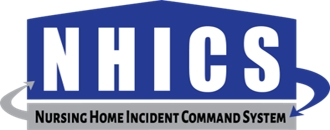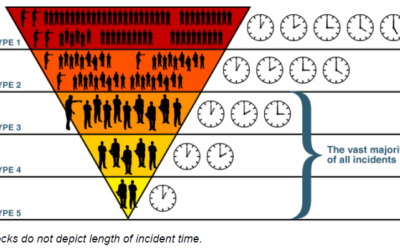Your Crisis Team knows the power that healthcare coalitions bring to a region. We can leverage your team with assistance in planning, training, and exercises.
Passionate
Members of Your Crisis Team have responded to events where loss of life and property were clearly the result of a lack of emergency preparedness planning. Your Crisis Team was founded to meet this need and foster resilience.
Experienced
We know how bad it can be – so you don’t have to find out the hard way. Our team of specialists don’t just look good on paper – they have been vetted in the field – by real events. These perspectives are critical in understanding the realities healthcare coalitions like you face when creating, activating and operationalizing your emergency operations plans. We also have preparedness and operations experience with the providers that make up your coalition, so we understand their needs as well.
Answers
We understand ASPR’s Health Care Preparedness and Response Capabilities, and HPP Performance Measures Implementation Guidance, and we are prepared to help you meet your grant requirements while maximizing the services that you know you need to deliver to your region.
Planning Services for Healthcare Coalitions
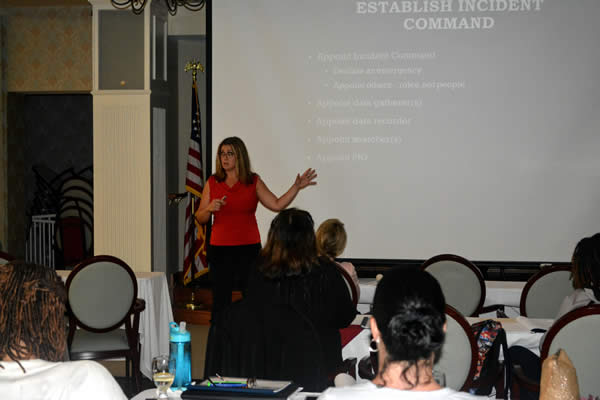
Careful review of input documents
Multiple interviews with key individuals
Lively In-person facilitation – half-day session of stakeholders
Draft plan development
Review and update quarterly
Multi-Year Training and Exercise Plan Development (MYTEP)
We will facilitate your development of a three-year plan that translates your risk assessment (HVA), recent After-Action Reports/Improvement Plans (AAR/IPs), grant guidance, and other inputs into a working plan to develop skills and exercise capabilities.
The coalition MYTEP will include all significant, relevant exercises in the region, so that stakeholders can participate and add on as desired. We use the Homeland Security Exercise and Evaluation Program (HSEEP) process and update the plan with you quarterly.
The process: we gather and study your input data, then facilitate a half-day meeting with stakeholders to set priorities and gather existing data and dates. We then draft and circulate the plan and solicit more feedback. The final plan should be published and becomes the input into event planning and budgeting.
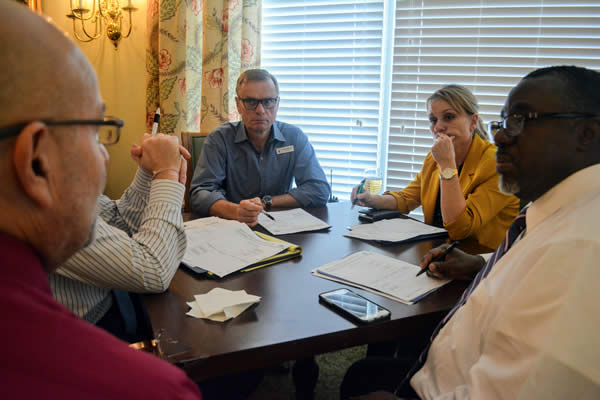
In-person interviews with key stakeholders
Determine mission essential functions, critical business processes and essential supporting activities
Create Knowledge Transfer Plans for each staff position
Conduct business continuity exercise to practice the plan
Business Continuity Plan
Your healthcare coalition is prepared for any healthcare-related emergency in your region, except the sudden departure of one of your key coalition staff!
We will help you document your organizational priorities, and the process to keep your coalition growing and effective, even when key staff vacancies occur unexpectedly.
We will help you determine and document your Mission Essential Functions, Critical Business Processes, and Essential Supporting Activities. Included in this process is the creation of an Executive Succession Plan.
Real World After-Action Report
If your region has a real-world emergency, and you use your emergency plan, then you should evaluate and document what happened by producing, in a timely manner, an After-Action Report / Improvement Plan that documents the incident, the actions you took, and any plans, policies, or procedures that you reviewed as a result.
Your Crisis Team will work with your staff to document the event and help determine what improvements will leave you even more prepared next time. We will then produce, for your approval, the required documents that will guide your preparedness improvements.
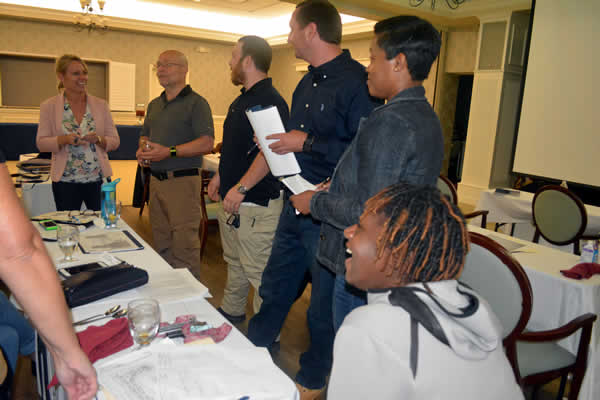
Multiple feedback processes for maximum input from those involved
Focus on lessons learned and improvements to plans
Regular follow-up conferences to help you implement the changes
Training Services for Healthcare Coalitions
Outreach and Training: Strengthen your membership by offering training and exercises that help your stakeholders meet their training and exercise requirements.
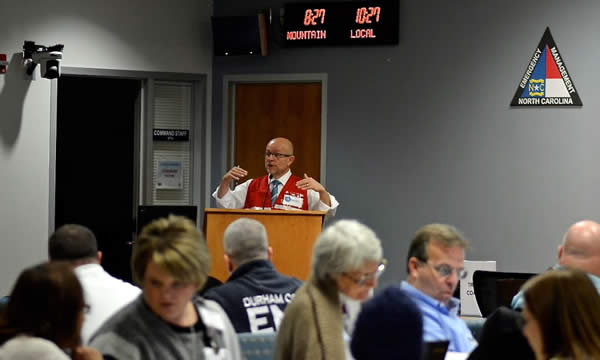
In-person classes with skilled, passionate instructors
Extensive small-group work and practical exercises
Certificates provided, CEU accreditation possible
ICS/HICS/NHICS Incident Command Training
Your stakeholders will be better able to organize themselves and interact with you, with each other, and with the emergency management community if they understand the process by which an emergency is managed. We can teach the courses that empower them for success. Your Crisis Team instructors, all of whom have served in various incident command positions on real emergencies, will guide your staff and stakeholders through any or all the appropriate classes for them.
Incident Command System (ICS)
We can teach the full set of FEMA ICS and National Incident Management System (NIMS) courses: 700, 100, 200, 300 and 400.
Healthcare Incident Command System (HICS)
This modification to ICS helps complex healthcare systems like large hospitals manage emergencies and disasters. It is a one-day class that consists of lecture and short activities and exercises.
Nursing Home Incident Command System (NHICS)
We provide a one-day course, teaching a more streamlined version of ICS that can work for long-term and intermediate care, critical access and smaller hospitals, and other healthcare providers. It empowers students with Incident Response Guides, Job Action Sheets, and forms to help them mobilize quickly and efficiently in an emergency.
Cyber Security for Healthcare
In this custom-designed course for Emergency Management and Information Technology professionals, we help you understand and act on:
- Threat Assessment: taking that one line from your HVA and really understanding likelihood, impact, and your current preparedness
- Cyber Vulnerabilities and threats
- Cyber Incident Response and Recovery
- Protecting your networks, systems, Applications, & Data
- Protecting connected medical devices
- Training and exercises for cybersecurity

In-person one and two-day training options
Understand the risk of elopement in your facility
Learn why residents and clients wander, and how they behave when they do
Develop or strengthen your Incident Action Guide
Create prevention and mitigation strategies
Operations-based exercises reinforce learning objectives
Elopement Prevention & Response Training for LTC/ICF
Two days of training and exercises on the prevention and mitigation of, and response to, incidents of missing residents from LTC facilities and missing clients from ICF/IID facilities, including:
Understanding different types of missing person incidents at healthcare facilities and reasons why residents/clients wander
Assessing your facility’s likelihood, impact, and preparedness regarding missing residents/clients, as required by the Centers for Medicare and Medicaid Services (CMS) under §483.73(a)(1) and §483.475(a)(1)
Discussing available prevention and mitigation strategies, including electronic tools such as Project Lifesaver; staff training; and alarm/alert systems
Developing key elements of policies and procedures for missing resident/client incidents
Training in initial search operations and incident management for missing resident/client incidents
Live operations-based exercise to allow students to demonstrate knowledge
Exercises for Healthcare Coalitions
Like all organizations, you need to exercise your capabilities regularly. We understand the healthcare capability requirements set down by ASPR, and ASPR’s Performance Measurement Indicators. We will work with you to identify your exercise needs, and then help you create, or update, your Multi-Year Training and Exercise Plan.
Then Your Crisis Team’s exercise team will design, deliver and evaluate exercises for your coalition and stakeholders.

Planning sessions to maximize the impact for your region
Coordination of all meetings and production of all exercise documentation
Assistance in exercise conduct and evaluation
Delivery of After-Action Report and Improvement Plan
Healthcare Coalition Surge Test Support
It’s a functional exercise. The Coalition Surge Test, as provided by ASPR, is a great starting point. We can help you turn that concept into a working exercise that tests other related capabilities and builds partnerships.
Your Crisis Team is the leader in understanding the potential successes and pitfalls of conducting the CST and knows how to turn this “annual chore” into a success.
Healthcare Coalition Tabletop Exercise
Good exercises build not only preparedness but relationships and trust. We ask the right questions early, insist on careful planning, so that your exercise is not just compliant, but successful. The low-stress environment of a tabletop exercise is designed to test plans, policies, and procedures, especially when coordinating the plans of multiple agencies. We will present to you a brief scenario. You will get a chance to talk about your plans, review them, and see how your plans would allow you to manage the situation we describe. Our role is to facilitate the discussion and then ask the appropriate questions which will evaluate your ability to meet the emergency preparedness capabilities you have chosen to be in the exercises.
You will receive promptly an “After-Action Report/Improvement Plan” which will summarize the exercise, your actions, and identify strengths as well as areas of improvement.
This exercise will be designed by and monitored by a person certified as a “Master Exercise Practitioner” by the US Department of Homeland Security. This is the highest possible certification for anyone conducting readiness exercises in the U.S.

Live, in-person exercises with facilitators and evaluators provided
Online, web-based exercises with moderator provide a cost-saving option
HSEEP Compliant
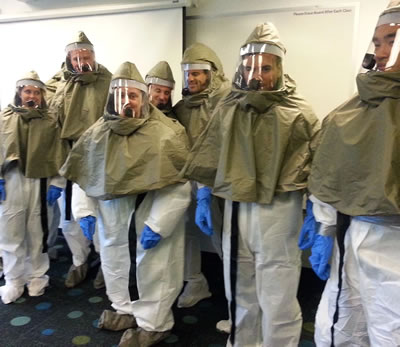
We provide all exercise documentation
Experience with multi-venue, multi-jurisdictional and multi-disciplinary exercises
HSEEP Compliant
Operations-Based Exercises
Good exercises build not only preparedness, but relationships and trust. We ask the right questions early, insist on careful planning, so that your exercise is not just compliant, but successful. Your Crisis Team will work with you to determine your exercise needs, then design, deliver, and evaluate your exercise.
You will receive promptly an “After-Action Report/Improvement Plan” which will summarize the exercise, your actions, and identify strengths as well as areas of improvement.
This exercise will be designed and is monitored by a US Department of Homeland Security certified “Master Exercise Practitioner”. This is the highest possible certification for anyone conducting readiness exercises in the U.S.
What does a project engagement with Your Crisis Team look like?
Our proven process and methodologies ensure a smooth and productive project.
RECON
Just like any incident, it’s important to first determine the initial facts and objectives. What’s the current situation with your emergency plans, training, and/or exercises? What are your mission objectives?
We will ask you the hard questions that help you draw a clear picture of where you are or need to be, and what obstacles exist between here and there.
ACTION PLAN
We will work with you to develop a step-by-step plan to help you achieve your objective. We will define operational periods – often two-week or monthly periods – which each contain clear steps to be taken. We will update you each period with an Incident Action Plan that reflects what has happened so far, and what is expected of each of us in the coming period. (If this sounds a lot like the NIMS you’re used to, that’s a good thing!)
OPERATIONS
We will work with your staff and/or independently, as dictated by the Action Plan, to achieve the tangible deliverables promised – plans, training guides, exercise elements – that reflect your organization’s culture and our professionalism.
You will have the opportunity to review and revise each, so the final version exceeds your expectations.
AFTER-ACTION
No significant project is complete until you and we have had the chance to weigh in on how well we did, and how this project has improved your preparedness.
We thrive on feedback. We can’t get better unless we get honest feedback from you.
Clients & Testimonials
Together, we developed a very successful kickoff program to build input and cooperation from among the dozens of agencies throughout the 21-county region in which the exercise would draw participation. This resulted in refining exercise objectives and developing partnerships that were important, not only throughout the exercise process but during real events as well.



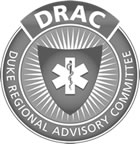

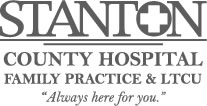


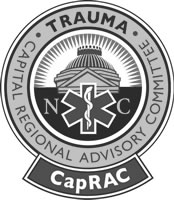
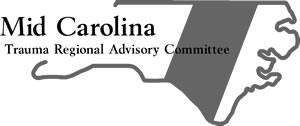


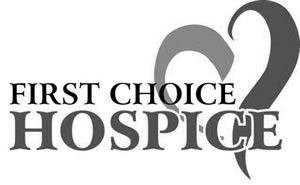
Health Care Leadership Team
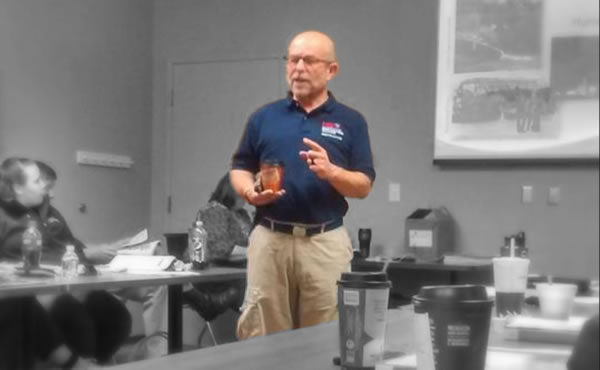
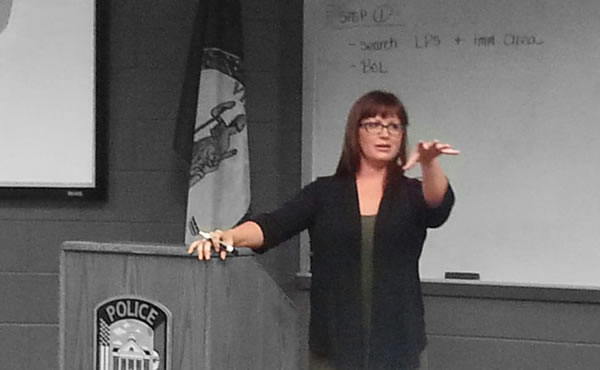
FREE Phone Consultation
Answer a few quick questions and we’ll follow up to schedule a FREE phone consultation.
Blog Posts Related to Health Care
NHICS Resource Page
Enter Your Sub-Title Here (should be as short as possible)
Goldilocks Would Love Incident Command
Incident Command structure should always be “just right” for the incident. It’s a modular system, not all-or-nothing!
Annual Review of Emergency Preparedness Plan
by Rick Christ Current CMS Emergency Preparedness Conditions of Participation require an annual review of your emergency preparedness plan. Under the proposed rule, the plan “must be evaluated and updated at least every 2 years.” Not in the rule, but in...
Website design & development by Carbon Six Digital Marketing Agency



